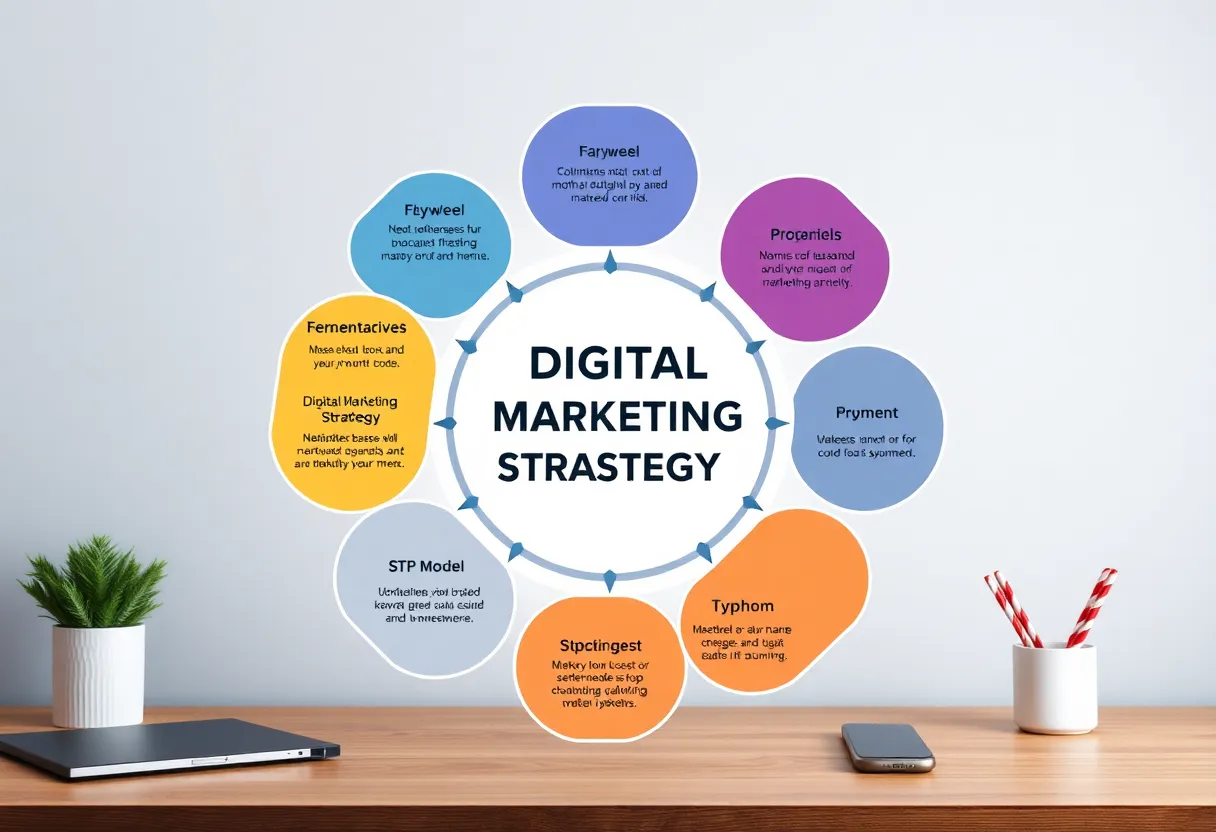News Summary
In the dynamic landscape of digital marketing, a solid strategy framework is crucial for guiding teams toward their goals. This article explores the significance of frameworks, techniques for understanding the audience, utilizing technology, managing budgets, and adapting to ongoing changes. Key frameworks like the Flywheel and STP Model are discussed for their effectiveness in ensuring a streamlined marketing approach, ultimately leading to sustainable success.
The Importance of Digital Marketing Strategy Frameworks in Achieving Success
Ever feel a bit lost trying to navigate the ever-changing world of digital marketing? Well, consider this – having a solid digital marketing strategy framework is much like having a GPS for your marketing journey. It not only provides clarity and direction but also helps ensure that your marketing team is on the same page and moving towards the same goals.
Why Use a Framework?
Imagine embarking on a road trip without a map. You might have a general idea of where you want to go, but without a clear plan, you could end up taking unnecessary detours or, even worse, getting completely lost. In a similar way, a digital marketing framework outlines the exact processes, critical channels, and key touchpoints needed to navigate your marketing strategy effectively.
These frameworks give marketing teams a better grasp on how to achieve their objectives. They simplify complex processes and make it easier for team members to communicate, both within the marketing department and across the organization. Plus, with a clearly defined framework in place, all members can focus on what really matters – generating results!
Getting to Know Your Audience
Marketing experts always emphasize the importance of defining clear objectives and thoroughly understanding your target audience. This is where frameworks come into play. They help you conduct competitive analysis and choose the most appropriate digital marketing channels tailored for your audience. That way, your marketing isn’t just a shot in the dark; it’s a well-planned strategy geared toward your audience’s habits and needs.
The Impact of Technology
With technology evolving at lightning speed, staying updated is crucial. Today’s market is tech-savvy, and consumers are changing the way they interact with brands. This is where AI steps in, impacting the digital landscape significantly. While it’s great for enhancing efficiency, striking a balance between AI capabilities and human creativity ensures that your content remains unique and engaging.
Managing Budgets and Improving Productivity
Effectively utilizing frameworks can significantly help in prioritizing workflows, optimizing marketing budgets, and ultimately improving productivity. With a structured approach, measuring strategy performance becomes straightforward. This allows for real-time optimization, enabling teams to adjust their strategies for better results swiftly.
Understanding Different Frameworks
There’s a variety of frameworks that can be exceptionally useful in digital marketing. Here are a few noted for their effectiveness:
- The Flywheel Framework: It focuses on attracting, engaging, and delighting customers.
- STP Model: This model helps in targeting, segmenting, and positioning products effectively.
- AARRR Framework: Especially beneficial for startups, it tracks user behavior to optimize sales.
- Forrester’s “5 Is” Model: Ideal for creating online communities and boosting customer loyalty.
- Nir Eyal’s Hook Model: Helps in creating habit-forming products and services.
- RACE Planning Model: Focuses on managing customer journeys and lead generation.
- McKinsey’s 7S Model: Aligns marketing efforts with internal processes.
- Marketing Funnel Framework: This framework helps in understanding the user journey from brand awareness to purchase.
Each one of these frameworks acts like a blueprint, guiding brands in analyzing insights, adjusting strategies, nurturing customer relationships, and adapting to current trends.
Adapting to Change
The beauty of digital marketing frameworks lies in their flexibility. They can evolve alongside changes in technology and shifting consumer behavior, ensuring that your marketing strategies remain relevant.
So, if you’re still dabbling in random advertising without a plan, it’s time to rethink your approach. Although you might see brief gains, those wins are unlikely to lead to long-term success — especially in a competitive landscape. Embracing a structured framework could very well be the key to achieving sustainable success in your digital marketing efforts!
Deeper Dive: News & Info About This Topic
HERE Resources
Spanish Regulatory Agency Fines Booking.com €413 Million for Unfair Practices
BriteCap Financial Welcomes New Talent to Enhance Leadership Team
Texas A&M International University Shines with Seven National Awards
Exciting News: Simplilearn Launches Comprehensive Digital Marketing Tutorial!
Manufacturing Sector Embraces Digital Marketing for Growth and Innovation
How Can You Effectively Use Influencer Marketing to Drive Your Digital Campaigns?
How Can You Use Emotional Marketing to Build Stronger Connections in Digital Marketing?
How Can You Create an Engaging Digital Marketing Campaign with Viral Potential?
How Can You Use User Feedback to Innovate Your Digital Marketing Strategy?
Digital Marketing Certifications: Your Ticket to Success in the Sunshine City
Additional Resources
- Search Engine Land: How AI agents are revolutionizing digital marketing
- Forbes: What Marketing Strategy Frameworks You Need to Succeed
- Harvard Business Review: The Importance of Marketing Strategy Frameworks
- Smart Insights: Importance of Marketing Strategy Frameworks
- MarketingProfs: Why You Need a Marketing Strategy Framework to Succeed








